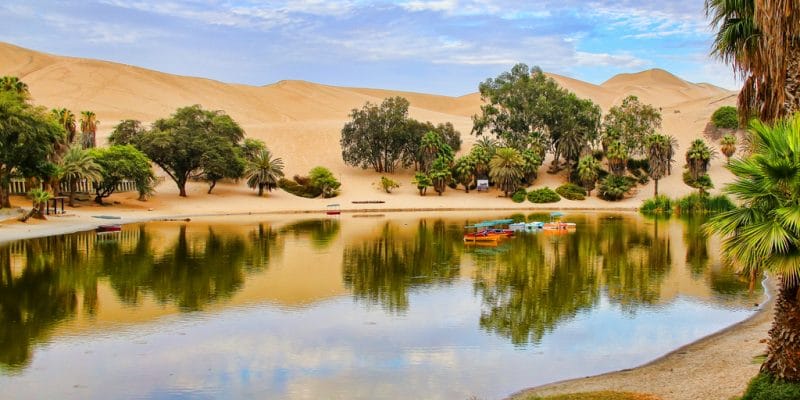At the initiative of WWF Tunisia, the branch of the World Wildlife Fund for Nature (WWF), a study will be launched on the reduction of the flow and quality of water in the Sebkhet Sidi Ali El Mekki lagoon in Bizerte (northern Tunisia). This wetland of international importance has been classified as a Ramsar zone since 2007.
According to the World Wildlife Fund (WWF), the study of the drying up of the waters of the Sebkhet Sidi Ali El Mekki lagoon is part of the scope of the GEMWET project “Conservation and sustainable development of coastal wetlands of high ecological value”.
This saline basin is drying up rapidly, with the consequences of a rise in the salinity of the water and the alteration of the automatic irrigation of the plants which eventually die, resulting in a decline in agriculture and the gradual death of the Sebkha.
The aim of the study undertaken by WWF Tunisia is to determine the means to review the level and quality of the water by an ideal circulation of water within the Sebkha in order to avoid its drying up in the area of the artificial stretches of land reclaimed from the water. The initiative will also help to determine the strategies for the replenishment of water in the micro-lagoons, which have suffered significant losses in fish stocks in recent years.
Benefits for local communities
WWF’s project will mainly benefit the community of Ghar El Meleh, a coastal town in north-eastern Tunisia; especially its fishermen and farmers who exploit the dyked and drained coastal marshes. Indeed, crops can be grown thanks to ingenious practices that are unique in the world, based on a passive irrigation system where plant roots are fed in all seasons by rainwater on the one hand and by water stored in the mountains as a result of geological karstic formation, on the other hand, which ensures a continuous flow of water to the lagoon and the Sebkha river.
The various developments (ports) and other interventions have affected the natural functioning of the natural lagoon complex. In fact, the communication with the sea which was made by passes has been disrupted and the ancient Boughaz has seen its role diminish with time.
In the past, Sebkhet Sidi Ali El Mekki was fed by 3 distinct points; the first point through passes when the sea level rises in autumn. This first point has been invaded by anarchic constructions and is no longer visible. The 2nd and 3rd points are at the level of the lagoon of Ghar El Melh and have been blocked by the construction of the road leading to the port.
On this occasion, WWF launched a call for tenders to select a group of consultants or a consultancy firm that will be responsible for carrying out the study with a margin of two months. It will guarantee the continuity of the circulation of good quality water within Sebkhet Sidi Ali El Mekki and between all the water bodies, including the micro-lakes, thanks to channels with appropriate orientations and depths.
Anne-Gaelle David (trainee)







